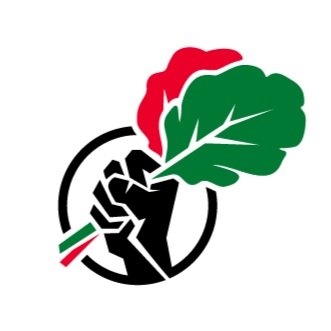2024 Policy Recap
As 2024 comes to a close, it is marked as another year where our labor, voice, and collective action are imprinted into history. Although divisive rhetoric continues to threaten communal notions of Nia and Ujima (Kwanzaa, 2008), we stand united in principled struggle for justice and transformational change to the material conditions of Black land stewards, producers, and cooperatives in urban and rural communities through advocacy and coalition organizing.
Throughout the year, the NBFJA Policy Table served as a collaborative space to over 20 organizations (NBFJA members and the larger ecosystem) spanning across nutrition, agriculture, and land policy. The Policy Table is robustly growing, engaging in monthly policy table meetings that have informed advocacy of NBFJA Farm Bill Demands to be included in the upcoming farm bill, and continuing development of a comprehensive policy scorecard.
Key advocacy milestones from this year include:
NBFJA met with Senator Cory Booker’s Office to advocate for Black farmer programs in the Farm Bill.
NBFJA participated in Bread for the World’s Black farmer listening session to amplify farmers’ voices.
Collaborated with the HEAL Food Alliance for a week of action focused on advancing the Farm Bill.
Released the NBFJA policy newsletter, providing updates on the Farm Bill and other advocacy efforts to over 200 subscribers. (Spring Policy Newsletter, Fall Policy Newsletter)
Updated the policy scorecard, incorporating feedback from the NBFJA community.
Amid global and national struggles for peace and resources, Black farmers, advocates, families, and friends continue to come together, share knowledge, organize, and build.
This year also brought about the culmination of Discrimination Financial Assistance Program (DFAP) under Section 22007 of the Inflation Reduction Act (IRA) intended to address decades of discrimination against farmers. Nearly $2 billion in assistance was distributed to those who faced discriminatory practices in USDA farm lending before 2021. Prior to the establishment of the DFAP, organizations like the National Black Food and Justice Alliance, Soul Fire Farm, and Black Farmer Fund had long been advocating for the rights of Black farmers under the Justice for Black Farmers Act following in the footsteps of the Federation of Southern Cooperatives, New Communities, and many more. Over these years these comrades have consistently proposed measures to address the systemic injustices faced by Black farmers, which include:
Department of Agriculture for civil Rights reform and equity oversight commision
Black farmer land grants
Funding for historically Black colleges and universities
Land retention, credit assistance and debt relief
Agricultural system reforms
While the DFAP is a significant step forward, it is a temporary fix. The program attempts to address decades of discrimination in a one-time payout, but it does not provide ongoing remedies for families who continue to face discrimination in USDA resources. Moreover, with the incoming federal political leadership, there is little confidence that DFAP will be renewed or expanded to address the persistent historical racial discrimination within the USDA.
This moment, however, presents an important opportunity to shift our advocacy efforts from federal to local and regional policymaking; focusing on educating elected officials about the issues affecting Black communities, pushing for community-led solutions, and transformative policy shifts that include but not limited to:
Transition from a corporate-controlled food system to one that is rooted in community-based solutions, prioritizing equity, health, and sustainability.
Legislative policies that address the historical and ongoing discrimination against Black farmers by incorporating race-specific language.
Reintroducing the Justice for Black Farmers Act as a core component of the Farm Bill.
Through sustained advocacy and local action, we can work toward the systemic changes needed to ensure that Black farmers thrive.
A Message from Dr. Jas:
Black farmers, food and land advocates, and descendants of Black rural families, are vital to America’s farming, food systems, and cultural landscape. Despite making up only 41,000 of the nation’s farmers, we continue to nourish communities, preserve traditions, and maintain a central place in the agricultural economy.
Historically, our diverse voices have been forced into a monolithic narrative that overlooks the unique struggles of rural farmers, urban growers, legacy landowners, food advocates, and others within the Black agrarian community. Political allies and foes on both sides of the aisle have fallen short on promises and actions for numerous election cycles, policies, and practices, leaving Black farmers to face the same systemic barriers without meaningful change.
Now is the time to move beyond partisan blame and focus on collective action and community-led solutions. Black land stewards and food cooperates are creating new pathways to resilience—building cooperative land ownership models, strengthening support networks, and developing ways to generate economic power within our communities.
Together, let us unite to dismantle the systems that hold us back and strive for a future where Black food advocates and land stewards thrive because of our collective efforts, not in spite of them.
Onward,
Dr. Jas
Co-Executive Director, Policy & Programs, NBFJA
Photography captured by Tabia Lisenbee-Parker, NBFJA Storyteller-In-Residence


